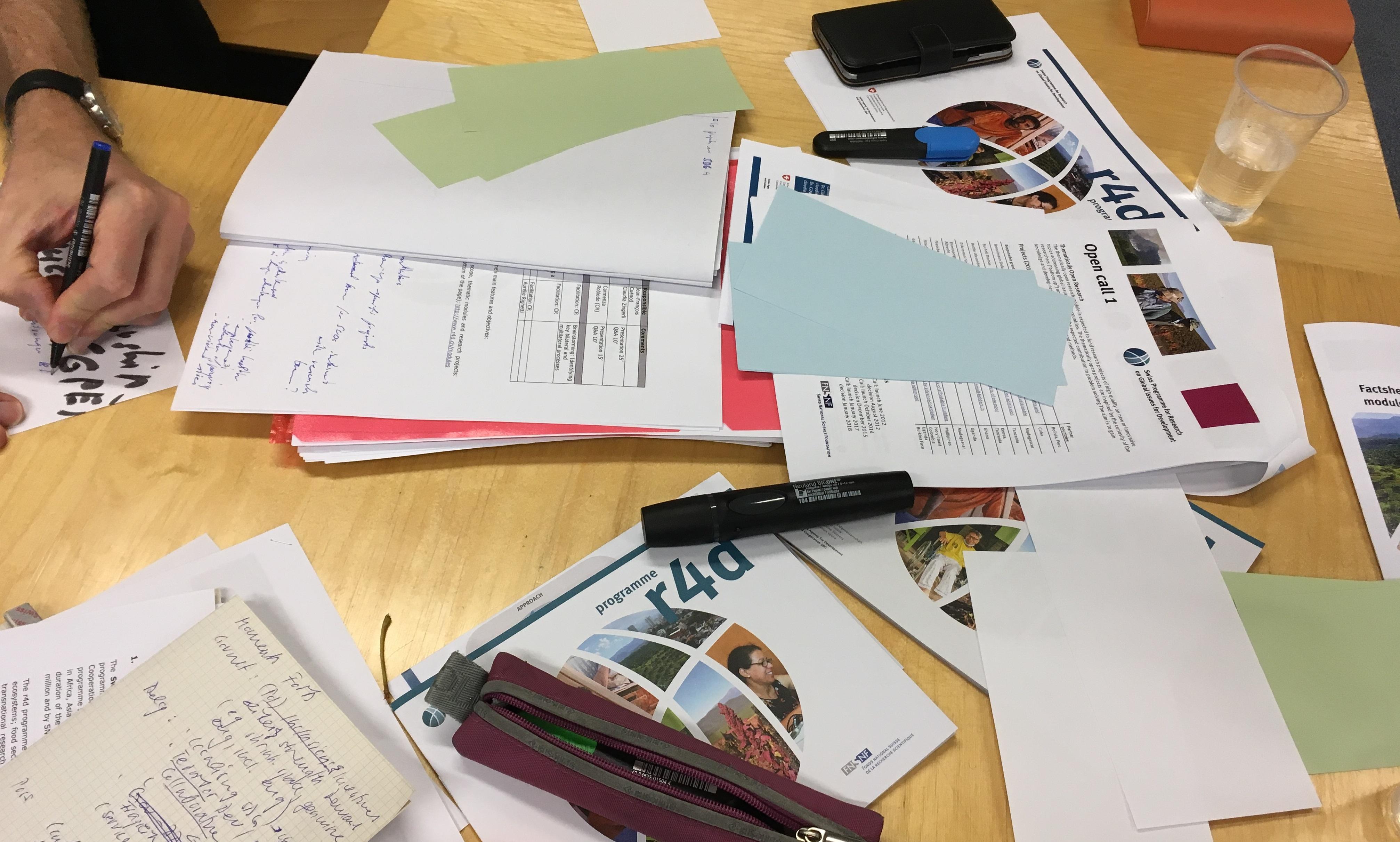r4d research activities during the Corona pandemic

The Covid-19 pandemic affects all of us. The r4d programme is eager to exert flexibility and supports well justified changes in research plans and adapted timelines.
The network of r4d research partners needs to be able to sustain its activities and to plan ahead as much as possible during the Covid-19 pandemic. Research for development, carried out in our 50 partner countries is even more important as well as more difficult these days.
As the r4d programme is implemented by the Swiss National Science Foundation we adhere to the official statements of the SNSF, published last week and updated on a regular basis on www.snf.ch/en/ : http://www.snf.ch/en/researchinFocus/newsroom/Pages/news-200319-pandemic-flexible-solutions-for-researchers.aspx .
The r4d programme would like to emphasise particularly two points:
Researchers' salaries : The salaries of staff employed on SNSF-funded projects and all other costs relevant to the project will be paid by the SNSF via the higher education institutions until the official end of the project. This continues to apply even if work at the institute is suspended in-between.
Adherence to timetable and budget: As far as possible, research work should be organised in a way that allows the project to finish on time without exceeding its budget. However, if your research project is delayed because of the Covid-19 pandemic, you may apply for a cost-neutral extension of your grant pursuant to the relevant regulations. You can submit such an extension application via the "Messages/Requests" data container of your project in mySNF.
Based on Article 36 of the Funding Regulations of the SNSF, you have further the option to apply for a supplementary grant for project completion. You can submit the application via the "Supplementary grants" data container of your project in mySNF.
Concerning supplementary grants, the r4d programme works within a fixed global budget frame. It has reserve funds and will provide these funds as supplementary grants to ongoing r4d projects in well justified cases and within its budgetary limits.
Concerning research activities in our r4d partner countries, we do not provide specific recommendations except that they must not increase the risk of the well-being of the local population (and researchers) and should not violate the regulations of the national authorities to fight the corona pandemic.
Overall, the r4d programme guarantees flexibility to adjusted research plans based on the justification provided by the project teams. Since many projects are in the final year (i.e. Food Security, Ecosystems, Open Call 2), an enhanced focus on analysis and publication would possibly be a way forward to stay active and to adhere to the original project duration.
Also, we encourage the research partnership teams to start searching for new funds, if collaborations proofed to be fruitful and productive. In that respect, the SNSF instrument SPIRIT is a funding line that could be envisaged for preparing new pre-proposals: http://www.snf.ch/en/funding/programmes/spirit/Pages/default.aspx .
Please do not hesitate to get back to us in case of further questions.
To conclude, we would like to cite a research partner from Nepal: "Be safe, stay safe and save others."
